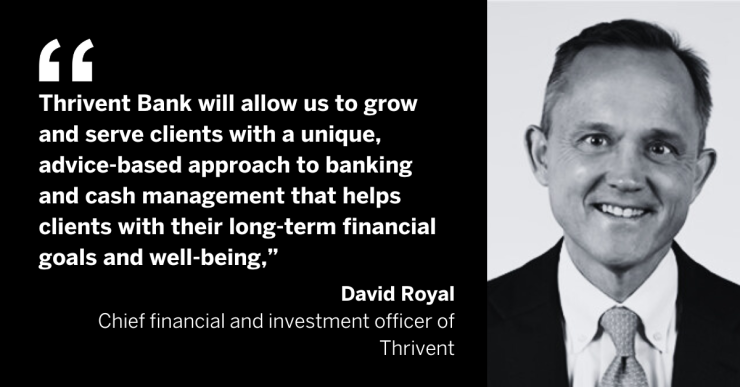
After more than three years in limbo,
The FDIC's board of directors announced in a
The industrial bank will be owned by Thrivent Financial Holdings, a subsidiary of TFL, and is required by the conditions of deposit insurance to be launched within 12 months of the decision.
"Thrivent's deposit insurance and merger applications, subject to appropriate conditions, appear to demonstrate that the parent companies can meet the source of financial strength requirement for the parent of the proposed bank and satisfy the statutory factors the FDIC is required to consider for deposit insurance applications and merger applications," Martin Gruenberg, chairman of the FDIC, said in
Merger plans will provide Thrivent Bank with the existing products, customers, infrastructure and staff of the $931 million-asset TFCU located in Appleton, Wisconsin, to support operations under the current business plan. Business plans also call for a wholly digital approach for offering products and services to clients (regardless of religion), closing all physical branches.
The merger between TFCU and Thrivent Bank will require the approval of the National Credit Union Administration before it can be executed.
Back in 2012, TFL cited regulatory pressures associated with insurance companies that owned banks as the reason behind its decision to
Executives of Thrivent Financial began the application process for an
"Thrivent Bank will allow us to grow and serve clients with a unique, advice-based approach to banking and cash management that helps clients with their long-term financial goals and well-being," said David Royal, chief financial and investment officer of Thrivent. "We're grateful that Thrivent has received conditional approval from both the [FDIC] and [UDFI] to move forward with forming Thrivent Bank."

To say the ILC environment has had a rough go of it over the last few years wouldn't be far from the truth.
The
But experts were less than optimistic about the prospects of future approvals following President Biden taking office in 2021.
In a
"Whenever we think about an institution that's attempting to get access to the benefits without compliance with the requirements, there will inherently be questions," Boltanksy said. "It doesn't mean that ILCs don't make sense. It just means that no one's going to get a charter during the Biden administration."
As bipartisan cohorts of senators call for






